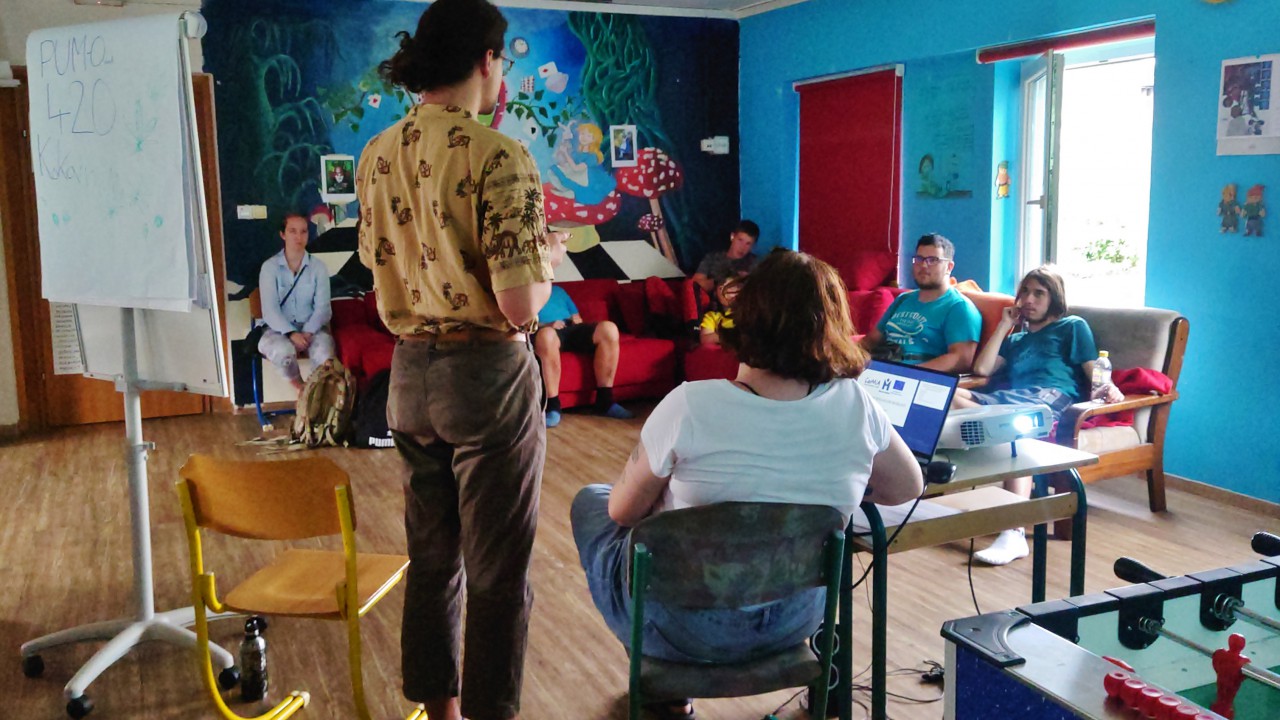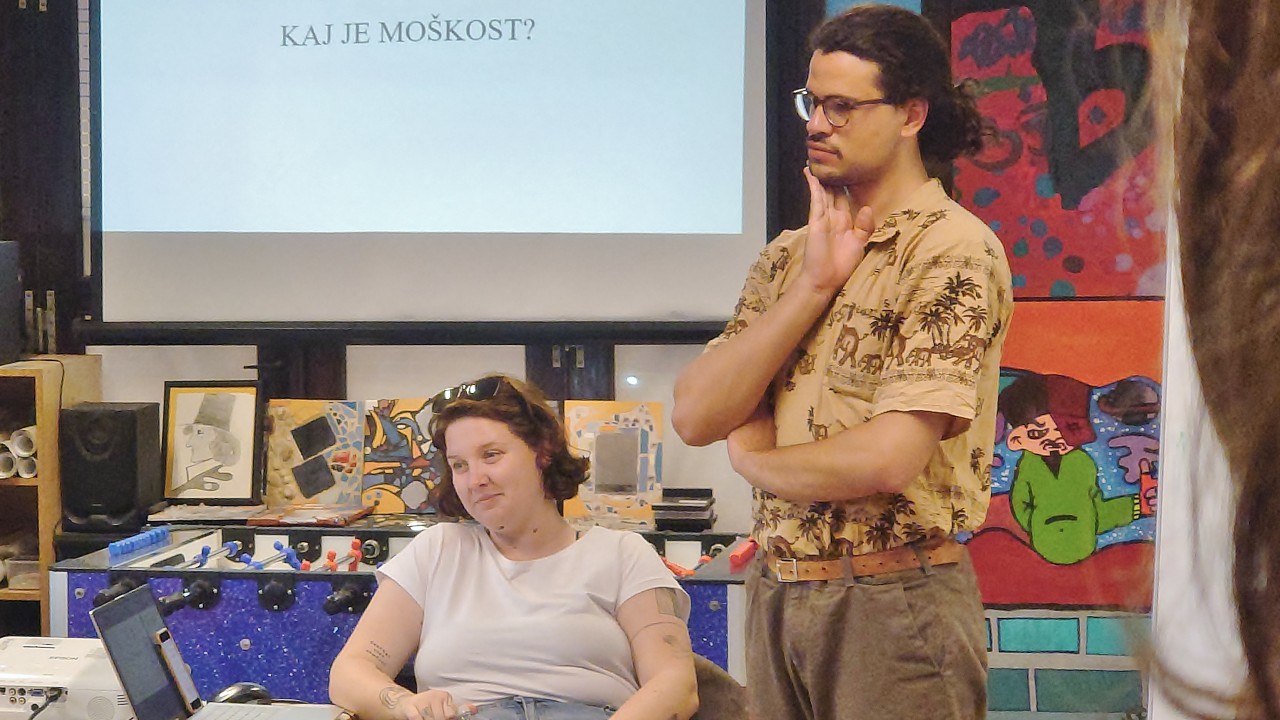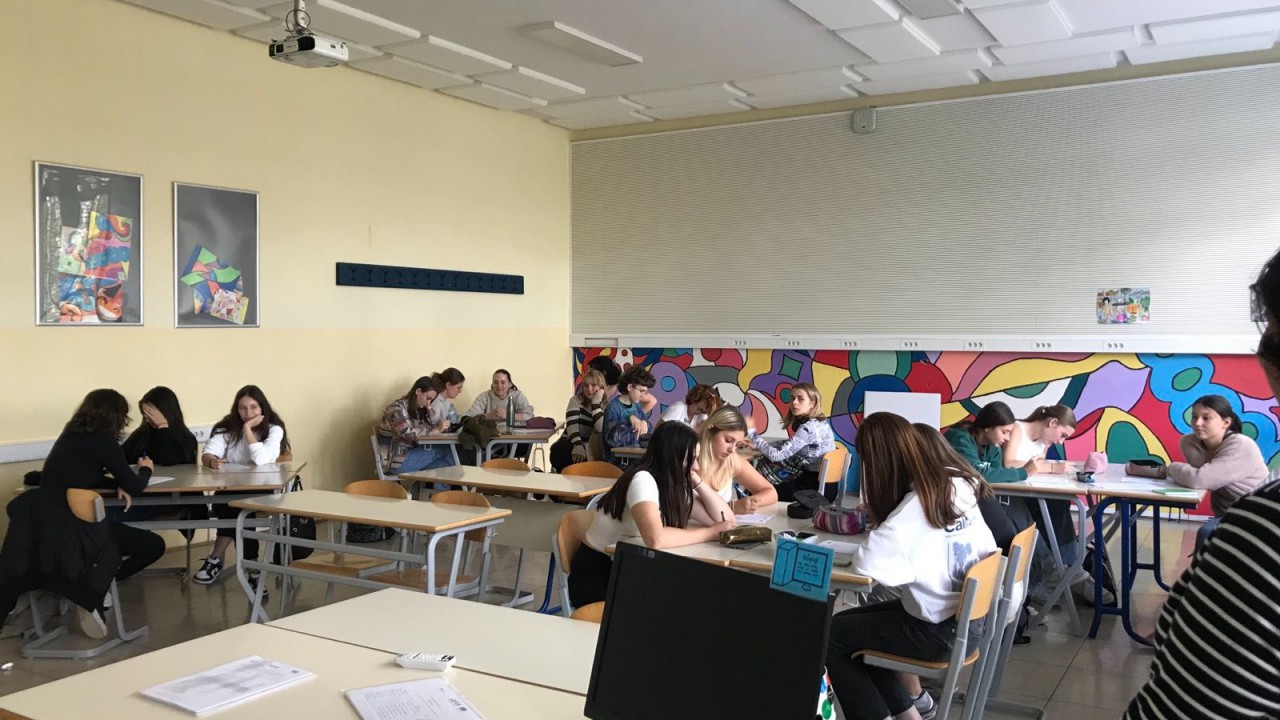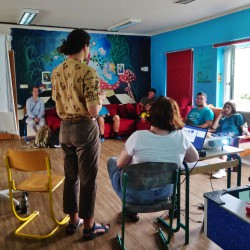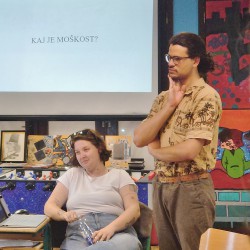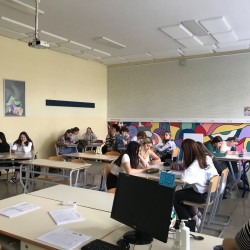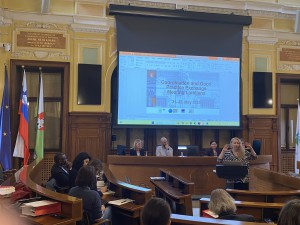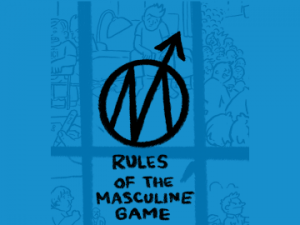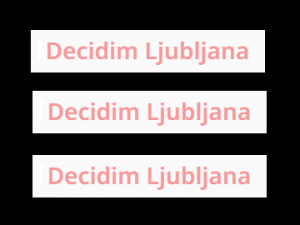Conclusion of the peer-to-peer workshops on masculinities and gender-based violence
25. 10. 2023 | Gender
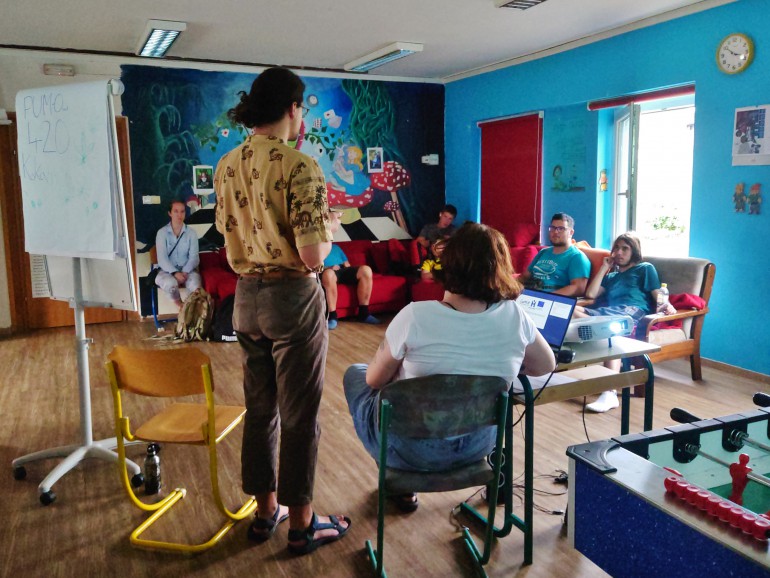
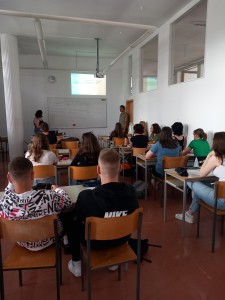 Within the international project Caring Masculinities in Action – CarMiA the Slovenian team has completed the implementation of the peer-to-peer workshops on gender-based violence that have been running in secondary schools across Slovenia since June. We delivered 19 workshops in six secondary schools and one non-formal education programme for young adults, involving 377 young people aged between 15 and 18 years.
Within the international project Caring Masculinities in Action – CarMiA the Slovenian team has completed the implementation of the peer-to-peer workshops on gender-based violence that have been running in secondary schools across Slovenia since June. We delivered 19 workshops in six secondary schools and one non-formal education programme for young adults, involving 377 young people aged between 15 and 18 years.
In the workshops, we tested a new approach to gender-based violence prevention, which focuses on work with young people on stereotypes of masculinities through peer-to-peer discussions. In the workshops, young change agents created space for (self)reflection on gender hierarchies in concrete life situations, crises related to (non-)fulfilment of societal ideals of masculinity and femininity, images from popular culture and digital media in thier relations to gender-based violence.
The change agents who conducted the workshops said, among other things:
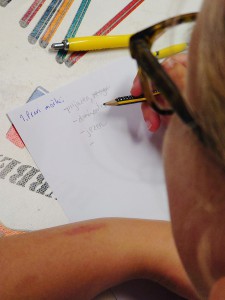 The project opened the door to the world of contemporary influences on the construction of teenage masculinity, which, judging by the experience of the workshops, is nowadays very much intertwined with the construction of teenage identity. Before starting the project, I did not think that in the course of the project I would be confronted with this kind of intertwining of teenage identity and toxic masculinity and the resulting belief in the moral right to male supremacy. The social problems with the widespread influence of incels like Andrew Tate are acute, but by no means insoluble… (Matija)
The project opened the door to the world of contemporary influences on the construction of teenage masculinity, which, judging by the experience of the workshops, is nowadays very much intertwined with the construction of teenage identity. Before starting the project, I did not think that in the course of the project I would be confronted with this kind of intertwining of teenage identity and toxic masculinity and the resulting belief in the moral right to male supremacy. The social problems with the widespread influence of incels like Andrew Tate are acute, but by no means insoluble… (Matija)
Doing gender-sensitive work as a change agent on the project has been a real challenge for me. With each workshop, my co-facilitator and I realised how important our ability to improvise and adapt, to listen to the participants and to be genuinely willing to engage in dialogue (even if it made us uncomfortable at times) was, more than our preparation or theoretical knowledge. We talked about gender, gender norms, gender-based violence, diverse masculinities with diverse groups; small and large, mostly a boys’ group, mostly a girls’ group, young people from the city and from the countryside… (Sara)
Through running the workshops I became even more aware of the importance of opening up conversations about gender and creating opportunities where young people can express their opinions, doubts or concerns. Recently, gender and masculinity as topics are being questioned more than perhaps ever before, but at the same time the reality of these topics, the consequences of their interpretations and the creation of new responses are actively lived by all of us. Thus, it is crucial to empower young people to think independently, critically about gender and to find expressions of gender that are understandable, safe and comfortable for them, while at the same time respectful and peaceful towards others. (Lana)
The Carmia project came into my life at a time when the themes it raises had a special meaning for me. Perhaps that is why I was so attracted to it in the first place. I liked the fact that the project required the participants to take an active part in the design of the workshops and allowed us a lot of room for manoeuvre in their implementation (as long as each workshop was aligned with the project’s vision and core ideas, of course). The fact that we were allowed enough “artistic freedom” in the design and implementation of the workshops certainly helped us to be able to implement them enthusiastically and to enjoy them together with the participants… (Žan)

